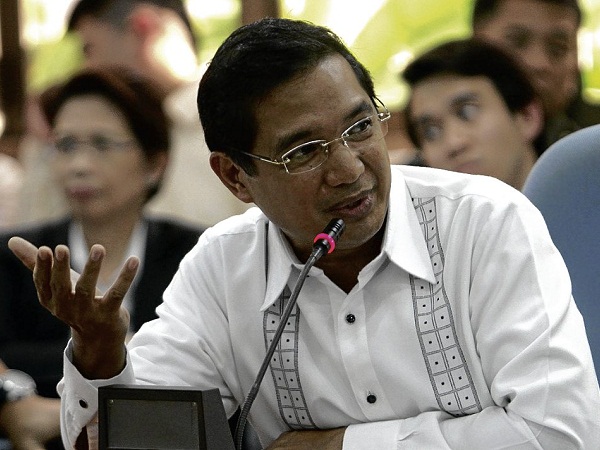SAN PEDRO, Laguna—A proponent of the bill that seeks to end political dynasties appealed to voters in the May elections to cast their ballots against politicians whose interests are for personal gains.
Bayan Muna Rep. Teddy Casiño on Thursday welcomed the support of the Catholic Bishops’ Conference of the Philippines to his antidynasty bill but lamented that “time has run out” with only three more sessions remaining before the 15th Congress closes next week.
Casiño, the author of House Bill No. 3413 that prohibits the establishment of political dynasties, said the bill was “placed in the legislative back burner” after being heard twice in the Congressional Committee on Suffrage and Electoral Reform.
“It has not only been a tradition but a practice in the government to ensure political hold that extends to economic power,” Casiño said in a phone interview.
In Calabarzon (Cavite, Laguna, Batangas, Rizal, Quezon) region with six million voters in 2010, a number of candidates in the 2013 elections are spouses or children of incumbent elected officials.
Among them were reelectionist Laguna Gov. Jeorge “ER” Ejercito, who was succeeded by his wife, Girlie “Maita,” as mayor of Pagsanjan in 2010. In San Pablo City, last-term Mayor Vicente Amante is fielding his son, Loreto, in the 2013 mayoral race.
In Cavite, popular political clans include those of former governor and Imus Rep. Erineo “Ayong” Maliksi, whose son, Emmanuel, is seeking reelection as city mayor.
The Revillas, with Ramon “Bong” Revilla Jr. in the Senate, has his wife, Lani Mercado-
Revilla as Bacoor representative; the senator’s brother, Strike, as the mayor; and the senator’s son, Jolo, as candidate for vice governor.
Cavite Gov. Juanito Victor “Jonvic” Remulla, a reelectionist, is the brother of Cavite’s 7th district Rep. Jesus Crispin while Dasmariñas City remains a bailiwick of the Barzagas, under Rep. Elpidio Barzaga and his wife, Jennifer, the city mayor.
Commission on Elections regional director Juanito Icaro said it is difficult to determine who belongs to a political dynasty without a legal definition as a basis.
“Precisely why we need to have a law, a legal definition [to what constitutes a political dynasty], for the government to decide,” Casiño said.
According to Casiño’s bill, political dynasties refer to members of a family running in the same elections or whose successors are relatives up to the second degree of affinity. He also cited a United Nations Development Program study, which said that since the restoration of democracy in 1987, dominant political families have succeeded in winning the elections.
Vice President Jejomar Binay, in one of his visits to Cavite in November, said he did not see the political dynasty issue as a problem as long as government officials are duly elected and are performing their duties. The Binays, for instance, are fielding three members of the family in the 2013 midterm polls.
“We are not questioning the performance but the monopoly. Who is it to say that others would not deliver a better job? That’s the thing, we’ll never know unless they are given the opportunity,” Casiño said.
